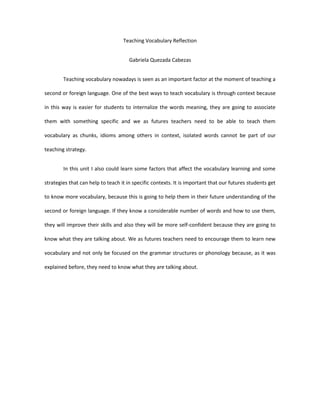Teaching vocabulary through context is most effective, as it allows students to internalize word meanings by associating them with specific situations. Future teachers should present vocabulary as chunks and idioms within contexts, rather than in isolation, and strategies were learned to do so. Building students' vocabulary will improve their language skills and confidence by expanding their ability to communicate, so teachers should encourage vocabulary learning alongside other areas like grammar.
